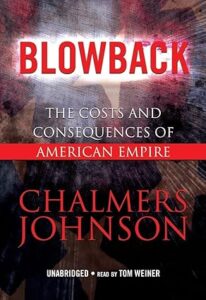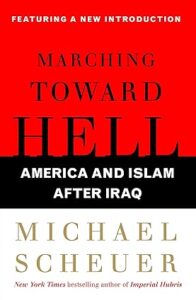In today’s political climate, few terms are as misunderstood—or as deliberately misrepresented—as nationalism.
Hijacked by globalist elites and distorted by media mouthpieces, the true meaning of American nationalism has been buried beneath layers of propaganda.
This post cuts through that confusion.
We’ll examine how real nationalism—rooted in sovereignty, self-determination, and the principles of the American Republic—has been smeared and replaced with aggressive imperialism masquerading as patriotism.
It’s time to separate fact from fiction and reclaim the populist roots of “America First.”
Globalism vs. the Republic: A War on Nationalism
Up to this point, we’ve examined how the power elite—those steering the course of global affairs—have misruled both America and the wider world. Their corruption has brought lasting consequences.
If that truth hasn’t yet become clear, here it is plainly: the forces behind the so-called New World Order are internationalist in nature.
They are imperialist, anti-nation, and fundamentally opposed to nationalism in all forms.
Which brings us to a critical subject—American nationalism—and the populist principles that have shaped it since the founding of our Republic.

Defining Nationalism: What It Is—and What It Isn’t
In the sections ahead, we’ll break down what true nationalism actually means—and what it doesn’t.
We’ll explore key writings that clarify the concept and highlight notable figures who embodied authentic American nationalism—profiles in populism who stood for sovereignty, tradition, and the will of the people.
Throughout history and across the globe, nationalism has remained a dominant force in shaping the destiny of nations. It continues to do so today.
At the heart of nearly every modern conflict lies a central struggle: nationalism versus internationalism.
These two opposing forces form the axis around which the events of our world now turn.
Post-9/11 Propaganda: Twisting the Meaning of Nationalism
In modern political discourse, few ideas have been as misrepresented as American nationalism.
This confusion only deepened after the tragedy of 9/11, when the term was cloaked in a new, misleading veneer—one that falsely equated nationalism with blind patriotism, militarism, and global intervention.
What followed was a deliberate effort to blur the lines between genuine national pride and aggressive imperialism.
Nationalism was recast as flag-waving jingoism and “super-patriotism,” while foreign wars and “nation-building” were sold to the public as acts of patriotic duty done in the name of democracy.
But let’s be clear: real nationalism is none of these things.
It never was—and it never will be.
A Moment Abroad: Realizing the Global Misunderstanding
Michael Collins Piper was always a proud advocate of American nationalism and the “America First” philosophy.
He never hesitated to say so.
But during a visit to Malaysia in 2004—while the United States was engaged in its second unnecessary and destructive war against Iraq—he came to a sobering realization: the ideas of “America First” and American nationalism were being grossly misperceived by people abroad.
During one of his public lectures in Malaysia, Piper expressed his support for America First and described himself as an unabashed nationalist.
A member of the audience stood and asked, “If you are a nationalist, why then are you criticizing the neo-conservatives in the Bush administration who are waging the war against Iraq?
How are you any different from those warmongers?”
It was at that moment that Piper understood the extent to which nationalism had become a dirty word—twisted and demonized not only in the United States, but across the entire world.
Chalmers Johnson’s Blowback: The Costs & Consequences of the American Empire presents a compelling analysis of how covert American actions abroad have fueled resentment and unintended consequences—an important read to grasp the hidden costs of empire.”
Demonizing Nationalism: A Media-Driven Narrative
The word nationalism—and the broader historical context in which it exists—often provokes strong, negative reactions, even among educated and politically engaged individuals.
For those who take the time to consider the term, the associations are almost always grim.
Thanks to decades of relentless propaganda, especially from the dominant media—which is heavily influenced by Zionist interests—nationalism has been routinely equated with the evils of Nazism and the horrors of fascism.
These terms, repeated endlessly in media and pop culture, have become catch-all phrases used to condemn any form of national self-determination.
This cartoonish portrayal—ripped straight from comic books and Hollywood scripts—has become, in effect, the official definition of nationalism in the modern Western mind. And that, is no accident.
Who Controls the Narrative? Rewriting the Meaning of Nationalism
The authority to define nationalism—both in popular culture and academic discourse—was long ago hijacked.
Since the mid-20th century, particularly in the Anglo-American world, that power has been held by individuals and institutions openly hostile to nationalism in all its forms.
Prior to World War II, nations like Germany and Italy were classic nationalist states.
But after what Piper bluntly called “that stupid war,” the very idea of nationalism was rebranded as one of the greatest evils imaginable—ranked by modern opinion right alongside child molestation and so-called “anti-Semitism,” which, Piper noted, is now treated as the ultimate unforgivable sin.
In light of this, Piper made it clear to his Malaysian audience that true nationalism had nothing whatsoever to do with the imperialism of the neo-conservatives—the “Kosher Konservatives,” as he termed them—who directed the Bush administration and who continue to hold sway over the Republican Party.
Their globalist warmongering was not nationalism, but the very internationalism that true nationalists reject.
For a forthright critique of U.S. foreign policy and its disastrous consequences in the Muslim world, Michael Scheuer’s Marching Toward Hell:America and Islam After Iraq provides invaluable perspectives directly relevant to the issues explored here.
False Nationalism: The Roosevelt Illusion
In the United States, the word nationalism carries a wide range of meanings—many of them deeply flawed.
Even well-meaning Americans often misunderstand the term.
Among them are the so-called “rock-ribbed Republicans” who proudly label themselves nationalists while glorifying the imperial swagger of Theodore Roosevelt.
They champion the “Big Stick” philosophy and cheer on the idea that America should project its military power across the globe—America, right or wrong.
This isn’t nationalism. It’s a distortion—one that conflates genuine national pride with aggressive interventionism.
True American nationalism is about defending the Republic, not policing the planet.
Theodore Roosevelt: The Birth of American Internationalism
While many celebrate Theodore Roosevelt as a towering figure of American greatness, Michael Collins Piper exposed a harsher reality often ignored by the mainstream media.
Even before Woodrow Wilson’s presidency, TR was urging Americans to sacrifice their lives and wealth for global conquest—allegedly in the name of bringing peace to the world.
This was never nationalism.
It was internationalism—an ideology that positions the United States as a global policeman tasked with spreading an ill-defined vision of “democracy.”
Today, this dangerous legacy lives on in the rhetoric and actions of the Zionist-Trotskyite schemers known as the “neo-conservatives.”
Theodore Roosevelt: Not a Nationalist, But a Model for False Patriotism
The truth is clear: Theodore Roosevelt was not a nationalist. He was an internationalist.
No genuine American nationalist should view TR as a model of true American greatness.
Yet, despite this, Roosevelt’s spirit has been co-opted to support modern political themes like “American exceptionalism” and, to a lesser extent, “national greatness conservatism.”
These ideas, mask a continuation of internationalist ambitions disguised as patriotism.
For a compelling examination of how Theodore Roosevelt and his contemporaries propelled the U.S. into imperial ventures under the guise of patriotism, The War Lovers: Roosevelt, Lodge, Hearst, and the Rush to Empire, 1898 offers invaluable insights into this pivotal era.

The 2012 Election: The Rise of “American Exceptionalism” Rhetoric
During the 2012 presidential campaign, the term American exceptionalism was widely promoted—especially by Republican candidates.
Newt Gingrich made it a central theme of his campaign, with his current wife even producing a documentary on the subject.
Mitt Romney titled his campaign book No Apology: The Case for American Greatness, while Sarah Palin included a chapter called “America the Exceptional” in her writings.
Former Senator Rick Santorum and Minnesota Governor Tim Pawlenty also echoed this internationalist message, promoting an agenda that, beneath the patriotic language, advanced global interventionism rather than true nationalism.
The Illusion of Patriotism: Unmasking American Exceptionalism
Don’t be deceived by rhetoric that sounds deeply patriotic.
The concept of American exceptionalism—along with the related idea of national greatness conservatism—serves as a modern propaganda mask.
Beneath the surface, these themes cloak old-fashioned Trotskyite communism: a form of rapacious imperialism and internationalism dressed up in the American flag.
Ultimately, they represent the age-old ambition for a global empire—a New World Order—not true American nationalism.
The Neo-Con Architects of “National Greatness Conservatism”
Michael Collins Piper identified three key architects behind the modern theme of “national greatness conservatism”—the so-called neo-conservative movement:
-
William Kristol, founding editor of The Weekly Standard, a publication long backed by Zionist billionaire Rupert Murdoch;
-
David Brooks, once Kristol’s protégé at the Standard and now a columnist for The New York Times;
-
Marshall Wittmann, a Jewish Trotskyite-turned-neoconservative and regular contributor to The Weekly Standard.
Kristol and Brooks launched their campaign for “national greatness conservatism” with a September 15, 1997 Wall Street Journal article calling on Americans to “reinvigorate the nationalism of Alexander Hamilton, Henry Clay, and Teddy Roosevelt.”
Later, during the 2000 presidential race, Wittmann endorsed John McCain in The Weekly Standard, praising him as a champion of “national greatness conservatism” and a modern incarnation of Theodore Roosevelt.

David Gelernter and the Religious Zeal of American Exceptionalism
Another prominent advocate of American exceptionalism is Yale Professor David Gelernter, a regular contributor to The Weekly Standard.
Gelernter promotes the view that Americanism represents a modern incarnation of Biblical Zionism.
He asserts that Americans possess a “divine mission to all mankind” and that every person worldwide is entitled to freedom, equality, and democracy—an idea that underpins much of the global interventionist agenda wrapped in patriotic rhetoric.
Americanism as a Global Religion: The Vision of David Gelernter
In his book Americanism: The Fourth Great Western Religion, David Gelernter argues that the United States—what he terms the center of “American Zionism”—carries an imperial, even God-given, responsibility to reshape the world.
Gelernter describes Americanism as “the Creed” behind this global agenda, a so-called “Fourth Great Western Religion” destined to establish a new worldwide regime. He boldly declares:
“We are the one and only biggest boy [in the world today]. If there is to be justice in the world, America must create it. We must pursue justice, help the suffering, and overthrow tyrants. We must spread the Creed.”
This vision underscores the imperialist zeal behind the rhetoric of American exceptionalism cloaked in religious mission.
Behind the Flag: The Real Agenda of “American Exceptionalism”
This is the New World Order. It is the core ideology behind “national greatness conservatism” and “American exceptionalism.”
Despite the patriotic wrapping, there is nothing truly American about it.
Michael Collins Piper warned readers not to be fooled by Republican talking points dressed up in red, white, and blue.
Beneath the surface lies a globalist agenda—one that serves imperial power, not the American people.
In sharp contrast, genuine American nationalists—those grounded in the traditional, populist meaning of nationalism—reject the idea that the U.S. should serve as the world’s policeman.
They oppose endless wars and the reckless export of “democracy,” now the battle cry of neo-conservative, Zionist-Trotskyite schemers who manipulate national pride to advance internationalist goals.

Reclaiming Nationalism from the Clutches of Empire
The warnings of Michael Scheuer—and others like Andrew Bacevich and Chalmers Johnson—make it undeniably clear: what is sold to Americans as “patriotism” or “American exceptionalism” is, in truth, the ideological cloak of imperialism.
For a clear-eyed understanding of how American foreign policy has been trapped in endless war and imperial overreach, Andrew Bacevich’s Washington Rules: America’s Path to Permanent War offers essential insights worth exploring.
These policies serve not the American people, but a foreign-focused elite driven by global agendas, often to the benefit of Israel and other special interests rather than the Republic itself.
Scheuer’s unapologetic stance—rooted in traditional American nationalism and constitutional principles—offers a desperately needed alternative to the destructive internationalism that has defined U.S. foreign policy for decades.
The time has come to reclaim our sovereignty, restore our borders, and stop sacrificing American lives and treasure in wars that serve anyone but us.
In our next post, CIA Insider Slams U.S. Foreign Policy and Zionist Lobby, we’ll explore the explosive warnings of former CIA official Michael Scheuer, whose America First critique exposes the deep entanglement between U.S. foreign policy and the pro-Israel lobby.


